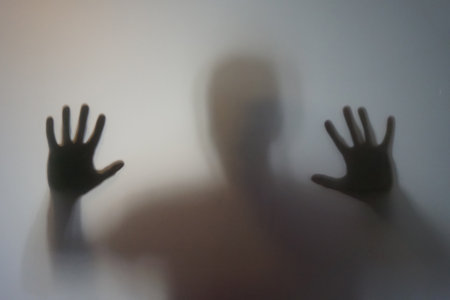Understanding Nightmares: A Psychological Overview
Nightmares are a universal human experience, often leaving us unsettled upon waking. From a psychological perspective, nightmares are vivid, disturbing dreams that typically awaken the sleeper and evoke strong feelings of fear, anxiety, or distress. While occasional nightmares are considered a normal part of sleep, recurring bad dreams can sometimes signal underlying emotional or psychological issues. In the British context, where cultural attitudes towards mental health have evolved significantly in recent years, there is growing interest in understanding why nightmares occur and what they might reveal about our state of mind.
Psychologists suggest that nightmares stem from complex interactions between our subconscious thoughts and daily experiences. Common triggers include stress, anxiety, unresolved trauma, or even certain medications. Additionally, disruptions in sleep patterns—a reality for many living in bustling British cities—can increase susceptibility to disturbing dreams. The general mechanism behind nightmares involves heightened brain activity during rapid eye movement (REM) sleep, when emotional memories are processed and integrated. This process can sometimes go awry, resulting in intense and memorable dream content that reflects our deepest worries or fears.
2. British Attitudes Toward Dreams and Nightmares
Understanding nightmares in the UK requires a glance at both historical context and present-day attitudes. The British have long had a complex relationship with dreams, often shaped by cultural norms that favour emotional restraint—the so-called “stiff upper lip.” Historically, nightmares were sometimes interpreted as omens or messages from the subconscious, but open discussion about troubling dreams was rare. This reticence can be traced back to Victorian values of self-control and privacy, where sharing one’s fears or vulnerabilities was discouraged.
Historical Interpretations vs. Modern Views
Over time, perspectives on nightmares in Britain have shifted. In earlier centuries, nightmares were sometimes attributed to supernatural causes or moral failings. Today, most Brits acknowledge the psychological roots of bad dreams, linking them to stress, anxiety, or daily life pressures. However, the tendency to downplay emotional distress persists. Many people still avoid discussing nightmares openly, preferring instead to “keep calm and carry on.”
| Era | Common Interpretation of Nightmares | Typical Response |
|---|---|---|
| Victorian Period | Supernatural or moral failing | Silence; private reflection |
| Mid-20th Century | Psychoanalytic symbolism (Freud/Jung influence) | Cautious discussion among close circles |
| Modern Day | Psychological stress/mental health awareness | Matter-of-fact acknowledgment; humour; avoidance of drama |
The ‘Stiff Upper Lip’ in Nightmare Discourse
The phrase “stiff upper lip” is often used to describe the quintessentially British approach to adversity—nightmares included. Rather than dwell on disturbing dreams, many Brits may brush them off with a joke or a cup of tea, signalling resilience and emotional control. This doesn’t mean that nightmares aren’t unsettling; rather, there’s a cultural script that encourages understatement. Phrases like “Just a bit of a funny dream” or “Didn’t sleep well last night” serve as polite euphemisms for more distressing experiences.
Contemporary Trends: Shifting Openness?
In recent years, mental health campaigns and greater public dialogue have encouraged more open conversations about sleep and psychological wellbeing. Younger generations in Britain are increasingly willing to talk about their nightmares without fear of judgment. Still, echoes of traditional reserve linger, particularly among older adults who may view nightmare-sharing as unnecessary or self-indulgent.

3. Cultural References: Nightmares in British Folklore and Literature
Nightmares have long held a significant place in British folklore, literature, and media, shaping the nation’s collective understanding of bad dreams. From age-old tales of the “night hag”—a supernatural figure said to sit on sleepers’ chests causing distressing dreams—to the spectral legends populating every county, these stories have coloured how nightmares are perceived across generations. Classic British literature, such as Shakespeare’s plays and Gothic novels like Mary Shelley’s Frankenstein, often employs nightmares as narrative devices to reveal inner turmoil or foreshadow doom. In modern times, television series like Doctor Who and popular crime dramas continue this tradition by using dream sequences to probe characters’ fears and anxieties. The persistent presence of nightmares in these cultural touchstones not only entertains but also reinforces the idea that bad dreams are a normal, even expected, aspect of the human psyche. By weaving nightmares into both historical lore and contemporary media, British culture subtly influences public perceptions—sometimes encouraging open discussion about troubling dreams, and at other times perpetuating the notion that nightmares are omens or warnings from the subconscious.
4. The Impact of Social and Economic Factors
Nightmares do not occur in a vacuum; they are deeply influenced by the social and economic context of our daily lives. In Britain, contemporary challenges like the cost of living crisis, NHS pressures, and job insecurity have become defining features of the national experience. These stressors have a profound effect on sleep quality and, by extension, the prevalence and severity of nightmares.
Societal Pressures and Sleep Disruption
The UK has seen significant changes over recent years, with many individuals feeling the pinch as inflation rises and wages stagnate. For many Britons, financial concerns are no longer abstract but immediate realities, impacting everything from housing stability to access to nutritious food. Such anxieties often manifest at night, disrupting sleep cycles and increasing susceptibility to vivid dreams and nightmares.
Healthcare Strains: The NHS Factor
The National Health Service (NHS) is a pillar of British society, but it faces unprecedented demand and chronic underfunding. Long waiting times for mental health services can leave people without timely support, making it harder to manage stress or trauma that can trigger bad dreams. Furthermore, those working within the NHS – from doctors to porters – are themselves under immense pressure, leading to higher rates of insomnia and nightmare occurrence among healthcare professionals.
Comparative Table: Key Stressors Impacting Nightmares in the UK
| Factor | Typical Impact on Sleep/Nightmares | Recent Trends (UK) |
|---|---|---|
| Cost of Living Crisis | Financial anxiety increases nighttime rumination and dream intensity | Marked increase in reported sleep disturbances since 2021 |
| NHS Waiting Times | Lack of access to mental health support prolongs stress symptoms | Mental health referrals have surged, waitlists extended |
| Job Insecurity | Fear of redundancy leads to chronic worry, affecting REM sleep | High turnover in hospitality/retail sectors post-pandemic |
| Housing Instability | Uncertainty disrupts sense of safety required for restful sleep | Younger adults renting long-term report more frequent nightmares |
| Pandemic Aftereffects | Lingering trauma increases vulnerability to distressing dreams | Pandemic-related nightmares persist for some populations |
Cultural Attitudes Toward Seeking Help
A uniquely British tendency towards stoicism can sometimes discourage open conversations about mental health or poor sleep. The ‘stiff upper lip’ approach may lead individuals to downplay their struggles with nightmares or avoid seeking professional help until problems become severe. This cultural dynamic underscores the importance of destigmatising discussions around sleep health across all communities in the UK.
5. Coping Strategies: British Ways to Manage Bad Dreams
In the UK, addressing nightmares isn’t just a matter of personal resilience; it’s woven into cultural routines and supported by accessible resources. One of the most quintessentially British remedies is the ritual of making a cup of tea. Many people find that the simple act of brewing and sipping a warm drink before bed—often chamomile or another caffeine-free herbal blend—can be soothing and help ease anxieties that might otherwise disrupt sleep. This nightly ritual serves not only as a comfort but also as a psychological cue signalling relaxation and safety.
NHS Guidance on Nightmares
The National Health Service (NHS) provides clear, practical advice for those struggling with recurrent bad dreams. Recommendations typically include maintaining consistent sleep schedules, avoiding stimulants like caffeine before bedtime, and creating a calming pre-sleep routine. The NHS also encourages individuals to talk about their nightmares if they become distressing or frequent, highlighting the importance of not bottling up emotions—a message that resonates with modern British sensibilities around mental health openness.
Support Networks and Community Resources
Beyond family and friends, Britons have access to a range of support networks. Charities such as Mind or The Sleep Charity offer helplines, online forums, and educational materials specifically aimed at demystifying sleep disturbances and providing actionable coping strategies. These organisations reflect the broader UK emphasis on community support and collective well-being. For some, joining local support groups or attending workshops can provide reassurance that they are not alone in experiencing nightmares.
Cultural Acceptance and Practical Solutions
Importantly, there is an increasing cultural acceptance in Britain that nightmares are a common experience rather than something to be ashamed of. Approaching bad dreams with humour—another distinctly British trait—can sometimes deflate their power. People might share tales of outlandish dreams over breakfast, turning what could be distressing into a topic for communal laughter or empathy. In all these ways, British culture blends tradition, practical guidance, and community-mindedness to help individuals manage the unsettling nature of nightmares.
6. When to Seek Help: Navigating the NHS for Nightmares
Nightmares are a common part of sleep, but when they become frequent or distressing enough to disrupt daily life, it may signal an underlying issue that requires attention. In Britain, it’s essential to recognise when bad dreams cross the threshold from an occasional nuisance to a potential mental health concern. If nightmares are causing ongoing sleep disturbance, significant anxiety, or are linked to trauma, depression, or anxiety disorders, it’s wise to seek professional guidance.
Recognising the Signs
Some people experience nightmares as isolated incidents, while others find themselves plagued by recurring themes or intense emotional responses upon waking. Persistent nightmares can lead to daytime fatigue, mood swings, and difficulty functioning at work or school. If you notice these patterns, it’s not simply “a bad night’s sleep”—it could be your mind signalling for help.
Your First Steps: Speaking to Your GP
The NHS is structured to offer support from the ground up. Start by booking an appointment with your GP (General Practitioner). GPs in the UK are well-versed in both physical and mental health concerns and can provide an initial assessment. Be honest about how often you have nightmares, how they affect your life, and any other symptoms you might be experiencing.
What Support Can You Expect?
Your GP may suggest simple sleep hygiene strategies or refer you to talking therapies available on the NHS, such as Cognitive Behavioural Therapy (CBT), which has proven effective for nightmare-related issues. In some cases, further evaluation by a mental health specialist might be recommended—especially if your nightmares relate to trauma (such as PTSD) or co-exist with conditions like anxiety or depression.
Navigating NHS Mental Health Services
If referred for additional support, you might encounter services like Improving Access to Psychological Therapies (IAPT) in England or similar schemes in Scotland, Wales, and Northern Ireland. These services provide confidential talking therapies without charge. You can also self-refer in many areas if you prefer not to wait for a GP referral.
Removing the Stigma
It’s important to remember that seeking help for mental health—including persistent nightmares—is viewed positively within British culture today. There is increasing awareness that everyone deserves restful sleep and peace of mind. The NHS offers robust pathways for support; reaching out is a practical step towards better wellbeing and is very much encouraged across the UK.


